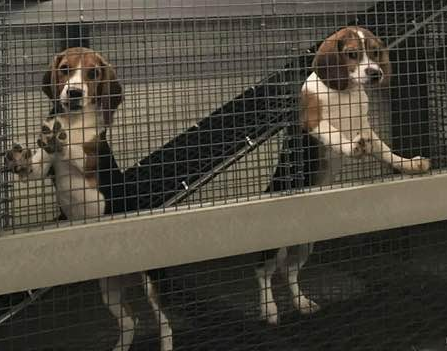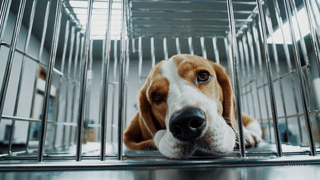The passage of the FDA Modernization Act 3.0 represents a significant shift in drug development protocols, particularly concerning the use of animals like beagles in testing. This legislation builds upon the FDA Modernization Act 2.0, which, in December 2022, removed the mandate for animal testing in new drug approvals. The 3.0 version goes further by mandating the FDA to update its regulations to facilitate the adoption of non-animal testing methods.
Implications for Beagles Bred for Testing:
- Reduction in Animal Testing: By promoting alternative testing methods, the reliance on beagles and other animals for drug testing is expected to decrease. This shift aims to minimize the ethical concerns and welfare issues associated with animal testing.
- Encouragement of Non-Animal Methods: The Act encourages the development and qualification of nonclinical testing methods that can replace or reduce animal use. This initiative is intended to improve the predictivity of nonclinical testing for human safety and efficacy, potentially leading to more accurate and humane testing practices. Drug Discovery Online
- Regulatory Alignment: The FDA is required to align its regulations with the new statute, ensuring that outdated mandates for animal testing are removed, and modern, humane methods are integrated into the drug approval process. Center for a Humane Economy
Current Status and Challenges:
Despite the legislative changes, there have been concerns about the FDA’s pace in implementing these new directives. Reports indicate that the agency has been slow to update its regulations, causing frustration among lawmakers and advocacy groups. The FDA Modernization Act 3.0 addresses this by setting clear timelines and requirements for the adoption of non-animal testing methods.
The FDA Modernization Act 3.0 is a pivotal step toward reducing the use of beagles and other animals in drug testing. By mandating the adoption of alternative testing methods and updating regulatory frameworks, the Act aims to foster more ethical and effective drug development processes. However, the success of these initiatives depends on timely and committed implementation by regulatory agencies.

You and I can play a pivotal role in pushing laboratories and regulatory agencies to adopt alternative testing methods. Here are practical ways to help:
1. Raise Awareness
- Share Information: Use social media, blogs, and community forums to spread awareness about the availability and benefits of non-animal testing methods.
- Educate Others: Inform friends, family, and colleagues about the ethical, scientific, and economic advantages of alternative testing.
- Highlight Success Stories: Share examples of companies or countries successfully implementing non-animal methods, demonstrating their feasibility.
2. Support Advocacy Groups
- Donate to Advocacy Organizations: Groups like the Center for a Humane Economy, Humane Society International, or Cruelty-Free International actively work to reduce animal testing.
- Volunteer: Offer time or skills to organizations that push for humane testing legislation and raise awareness.
- Join Campaigns: Participate in campaigns targeting specific labs or industries to urge the adoption of alternative methods.
3. Petition for Change
- Sign and Share Petitions: Many organizations host petitions urging laboratories, companies, and regulatory bodies to adopt non-animal testing practices.
- Start a Petition: Create a petition focused on specific labs or regulatory delays in adopting alternative methods.
4. Advocate for Legislation
- Contact Lawmakers: Write to your local, state, or federal representatives urging them to prioritize legislation promoting alternative testing methods.
- Support Pro-Science Laws: Back initiatives like the FDA Modernization Act and encourage others to do the same.
- Attend Public Hearings: Speak up during hearings or forums on drug development and testing regulations.
5. Boycott Products Tested on Animals
- Choose Cruelty-Free Brands: Support companies that use alternative methods and avoid products tested on animals.
- Leverage Consumer Power: Inform companies that you prefer cruelty-free options and highlight that demand for ethical products is growing.
6. Fund Research into Alternatives
- Donate to Non-Animal Testing Research: Support universities, startups, and organizations developing cutting-edge methods like organ-on-a-chip, computer modeling, or in vitro testing.
- Encourage Grants for Innovation: Push for more public and private funding to accelerate the adoption of alternatives.
7. Hold Labs Accountable
- Monitor Lab Practices: Stay informed about which labs still rely on outdated animal testing methods.
- Demand Transparency: Call on companies and labs to disclose their progress toward adopting alternative testing.
- Encourage Corporate Responsibility: Advocate for businesses to adopt internal policies prioritizing non-animal methods.
8. Participate in Public Discussions
- Engage with Regulators: Submit public comments to the FDA or other regulatory agencies advocating for faster implementation of non-animal testing guidelines.
- Host Community Events: Organize webinars, workshops, or community talks to discuss humane testing alternatives and how the public can support them.
9. Leverage Media Attention
- Collaborate with Journalists: Share stories and statistics about animal testing and alternative methods to garner media attention.
- Write Op-Eds: Publish articles in local newspapers or online platforms advocating for change.
10. Support Ethical Companies
- Reward Innovators: Highlight and support companies that are early adopters of alternative testing methods, showing others the potential benefits of transitioning.
- Encourage Partnerships: Advocate for collaborations between companies, academic institutions, and nonprofits to speed up the adoption of alternatives.
Why It Matters
Public pressure can drive change by influencing laws, corporate behavior, and scientific practices. When consumers, voters, and donors demand humane and innovative methods, companies and regulators are more likely to respond positively. Together, we can ensure a future where testing is ethical, effective, and cruelty-free.

